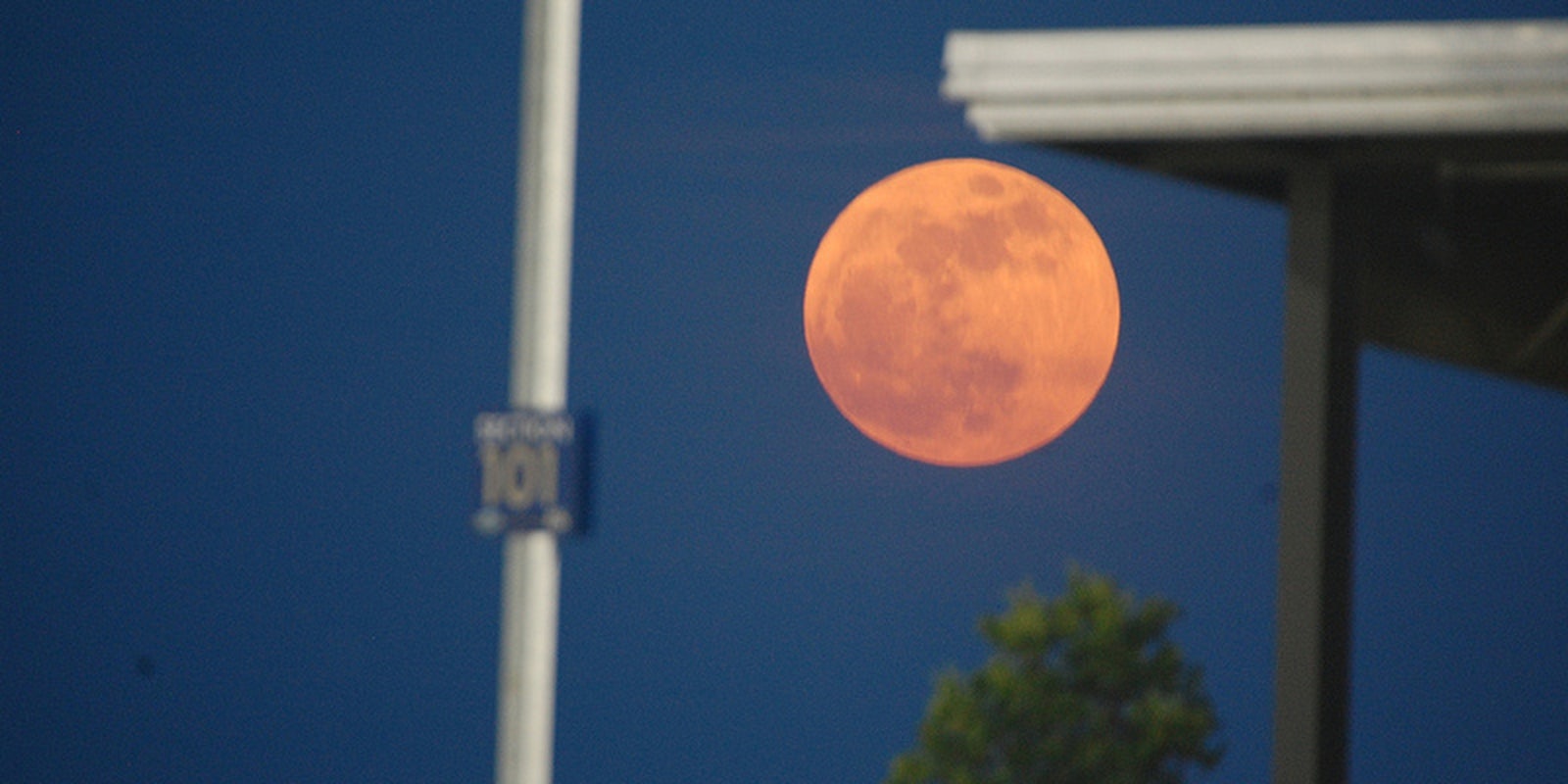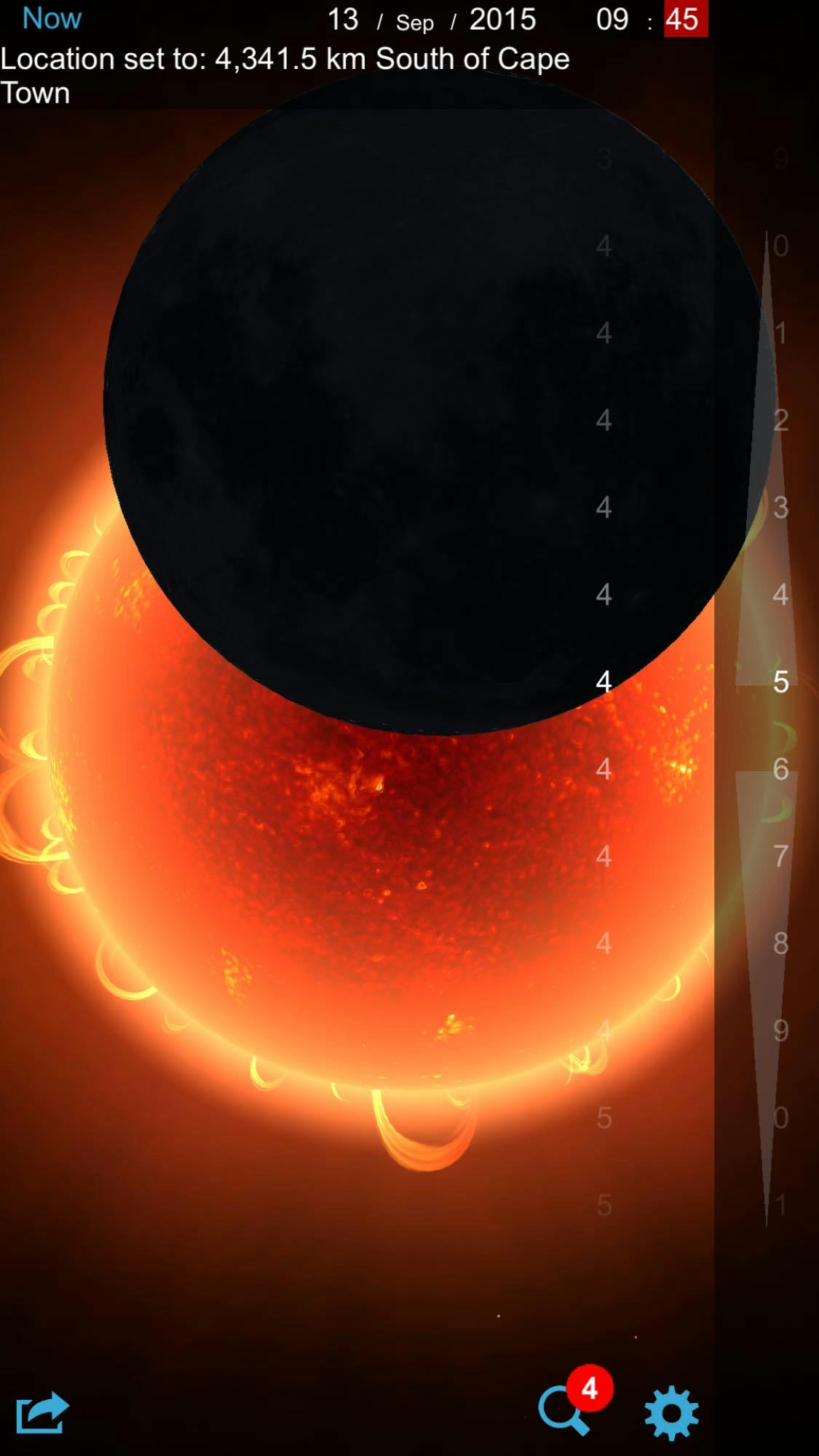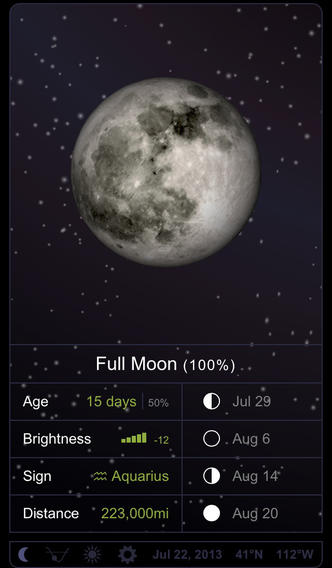You don’t have to be an astronomer to get a larger-than-life view of the latest lunar event. Whether it’s a Summer Solstice full moon or a lunar eclipse, there are plenty of apps that will greatly improve your skygazing abilities. These include night-vision apps that let you trick out your iPhone’s default camera to perform in low-light conditions, an app that helps you see the moon’s exact rise and set times, as well as an app that lets you see a map of the light pollution in your city and find areas with clear skies.
You’ll never have to take another grainy blood moon Instagram photo or miss another rare cosmic event again.
1) Star Chart
Star Chart uses both 3D simulation and GPS technology to show you the location of every current star, moon, and planet visible from the Earth. Just point your device at the night sky, and Star Chart will identify every celestial body. Want to see how the supermoon eclipse looks to stargazers in Nashville, Tennessee, or Cape Town, South Africa? Simply change your location in the settings.
Read more from the Daily Dot:
Star Chart’s Time Shift feature also allows you to scroll 10,000 years in the past or the future.
Star Chart’s Facebook page is regularly updated with stunning videos, visitations, and helpful hints on how to watch upcoming cosmic events.
2) NightCap Pro
Many times objects in nature that appear quite the spectacle to the naked eye end up looking flat, faded, or out of focus through the lens of a camera. This truth applies even more so to iPhone photography, where the camera’s default settings might result in a photo of a blood moon that could easily be a street lamp.
In short, don’t be this guy:
The street lamp went up the sky? #BloodMoon2014 #seeingred pic.twitter.com/eyE4heJou5
— Zhi Bin (@zhibin87) October 10, 2014
iPhone astrophotgrapher Andrew Symes recommends Night Cap Pro, an app he says will essentially “trick your phone into taking the equivalent of a long exposure.”
3) Scope Nights
Scope Nights is a must-have for any urban stargazer: an astronomy weather app. Using a combination of global and national weather forecasts, Scope Nights helps you find the best time and location for optimal stargazing. The app contains a “dark sky” map, incorporating global light pollution data from NASA, which will help you find the closest location with clear skies.
4) Luna Solaria
Luna Solaria allows you to see rise and set times for both the moon and the sun and chart their precise locations in the sky. The app will allow you to view the moon in real-time. It will also let you know its transit time, or when the moon will be at its highest point in the sky.
Photo via Minda Haas/Flickr (CC BY-SA 2.0)







